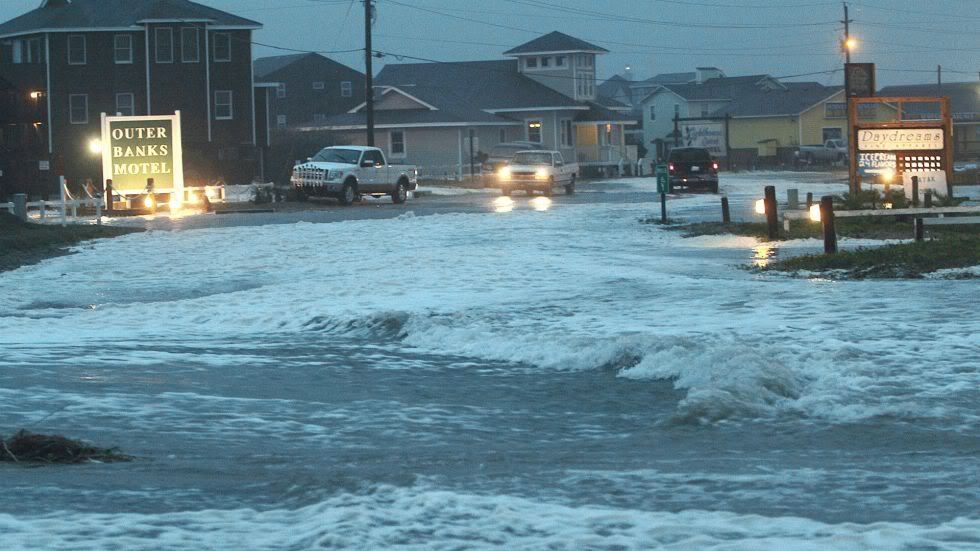Tuesday afternoon, a post-tropical storm hit the northeastern United-States. Meteorologists are calling this one “Sandy”. So far, she’s been responsible for major flooding, power outages and at least 16 deaths. New York City has taken her wrath the hardest. Lower Manhattan is completely shut down; the subway systems are at a standstill and people are stuck inside their apartments waiting for the streets to clear. Vehicles that were once parked on the bustling streets of New York are now covered in seawater.
 |
| This is an example of some of the flooding that resulted from Sandy. |
The disastrous effects of the storm are now hitting close to home. Southern Ontario has experienced powerful wind gusts close to 80 kilometers per hour and between 20 to 40 millimeters of heavy rain fall.
Reports of vicious winds uprooting trees and destroying homes indicates, now more than ever, that Canada is susceptible to extreme weather conditions that can affect your livelihood, your safety and your home.
Being properly prepared with emergency and first aid kits is crucial when expecting these types of storms. Having enough water, food, extra blankets and clothing on hand will ensure proper safety for you and your family.
After the storm has passed, it is of utmost importance that you inspect your property for any damages caused by the storm. You should be looking for such things as damage to your windows, doors and roof.
Contact your broker immediately for any questions concerning the effects of the storm and how to begin the claims process.
Written by Genevieve St-Denis, Account Executive,
Rhodes & Williams Limited





